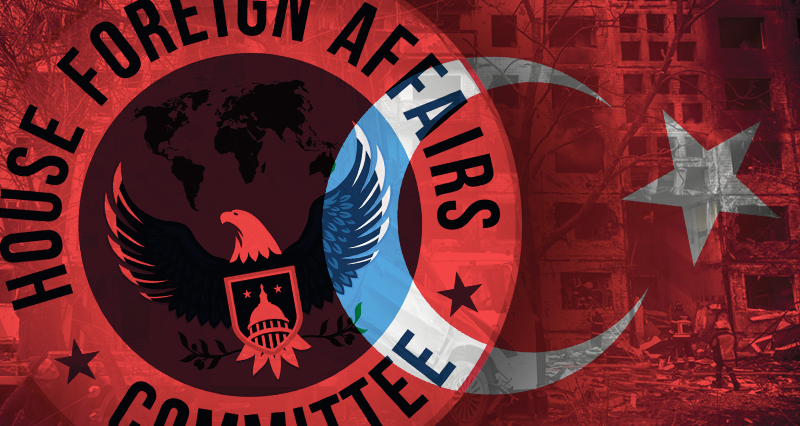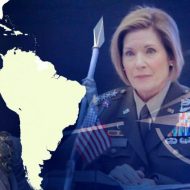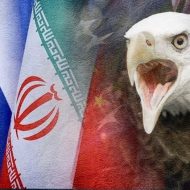Can the waves at the Black Sea calm the waters of the Eastern Mediterranean? In less maritime words: will the conflict in the Ukraine lead to a reset in the long-time troubled Turkish – American bilateral relations? A recent hearing in US House of Representatives may provide some answers.
On April 4, the US-Turkish Strategic Dialogue Mechanism has been inaugurated. US Under Secretary of State Victoria Nuland visited Ankara for this purpose.
U.S. Department of Commerce Under Secretary Marisa Lago visited Turkey on April 5-6 to advance the economic and trade cooperation goals of the Strategic Mechanism. She hosted the Eurasia Small Modular Reactor Forum in Ankara to discuss the benefits of innovative clean and green energy, and solutions that the U.S. private sector offers the region, says the US Embassy in Turkey.
The matter of energy casts the eye immediately on a long-term area of conflict between the US and Turkey: The Eastern Mediterranean. The US House of Representatives’ Foreign Affairs Committee dedicated a session to it on March 31. The session was titled “Opportunities & Challenges in Eastern Mediterranean: Examining US Interests & Regional Cooperation”. And energy was one of the main issues right from the start.
Small Modular Reactors made in U.S.A instead of Russian nuclear plant?
In the opening statement, Brian Fitzpatrick, Republican member of the House, emphasized that Turkey was a “large importer of gas”. Fitzpatrick did not stop there and stated: “The Russian sponsored nuclear plant is scheduled to come online from 2023 to 2026 and is projected to supply about 10% of Turkey’s energy needs.” Fitzpatrick demanded to assist “our allies to ensure they have the tools they need to be energy independent from Russia”. Polite way to say: ‘would you like to have some US made small modular reactors?
Just three days ago, the US and Latvia, another Russia-neighboring country, announced a new partnership under the Foundational Infrastructure for Responsible Use of Small Modular Reactor Technology (FIRST) program.
Bill Keating, a Democratic Congressman also emphasized the need for “providing alternatives to Russian energy”.
The experts testifying in the hearing largely focused on Turkey’s role in the Eastern Mediterranean and beyond.
Alan Makovsky expresses in his written testimony “skepticism “ but adds that “The war may present an opportunity to move Turkey to the NATO side of the fence.”
Makvosky is a Senior Fellow at the Center for American Progress, a private think-tank in Washington, DC. From 2001 to 2013, who served as a Senior Professional Staff Member (Democrat) on the Committee on Foreign Affairs in the U.S. House of Representatives. In terms of military, Makvosky proposes the “US should continue to hedge its bets in that regard by building and expanding military facilities in Bulgaria, Romania, and Greece.” According to Makvosky, the Eastern Mediterranean is the “crossroads of three continents” and Greece is “its center”.
It is noteworthy that Greek trade unions called to a general strike on April 6, with one their biggest, the Communist Party-connected PAME rejected the participation of Greece in an “imperialist war” and the use of US and NATO basis in the country.
“Unified Cyprus may become a NATO member”
As for US-Turkey relations, Makovsky proposes to “Re-double efforts to solve the Cyprus problem”, while solution for him is – of course – the unification of the both different political entities on the island. “And a unified Cyprus might well be a member of NATO” says Makovsky and adds this would also solve all questions around gas exploration and transport.
His testimony continues to tackle Turkish-American tensions on the level of methodology. His proposed method is Presidential high-level dialogue. Saying that Biden’s “cold shoulder” toward Turkish President has yielded positive results, Makovsky says that now, “occasional Presidential dialogue would likely be useful.”
If Makovsky is “skeptical”, Howard Eissenstat’s testimony should be considered hopeless.
Unchanged “fundamental reality” in US-Turkish relations
Eissenstat states: “Ankara is neither going to be a reliable ally, nor should we think of it as a new enemy. Instead, Turkey and the US are likely to remain formal allies, occasional partners, and, more frequently than we would like, regional rivals.” According to the associate professor of History at St. Lawrence University and non-resident scholar at the Middle East Institute, Ankara’s self perception is that of “developing into a global, rather than merely regional power” – and the position in the Ukraine conflict is a case in point. Eissenstat describes Turkey’s policy as an act of balance.
In favor of Ukraine, Eissenstatt notes the political support against the occupation of Crimea, the delivery of Turkish drones, the closure of the Bosporus straits and hosting of negotiations. On the other side, Ankara has not closed the air space to Russia, has not joined sanctions and Russian oligarchs are “sailing their yachts to Turkish ports”.
“Turkey is anxious to break free from hypocritical constraints imposed by the West”
“From the beginning of the crisis, Turkey has matched its support for Ukraine with criticism of NATO. While recent polling suggests that a firm majority of the Turkish public supports Ukraine, nearly half of Turkish citizens blame NATO for the crisis. Only a third blame Russia” says Eissenstat, conceding that “from its perspective, Turkey has managed the crisis well”.
The expert is not surprised by this position: “Turkey’s leadership believes that it is well placed to take a leading role within a new, multi-polar world and it is anxious to break free from what it sees as the hypocritical constraints imposed on it by its Western allies. This does not mean it wishes to leave NATO – it does not.”
With a view on the Turkish election in 2023, Eissenstat says “ a belief in Washington’s ill-will towards Turkey are now woven into the fabric of Turkey’s political culture” including the opposition which would not welcome US support for SDF of change policy in Cyprus. Still he bets on electoral democracy and expects that the opposition would be “less aggressive”.
“The Ukraine crisis has brought the EU and the United States together in ways that seemed unimaginable a few months ago. We should capitalize on this by working in tangent in the East Mediterranean. In Turkey, we should remain alert for opportunities at cooperation, but treat overtures from Ankara carefully; Turkish charm offensives that are not accompanied by real policy changes are meaningless. For a true reset of Turkish – US relations, Turkey needs to demonstrate that it is willing to address key US concerns and that it remains committed to the basic precepts of electoral democracy,” concludes Eissenstat.
“Press Ankara to abandon balancing between Washington and Moscow”
Another expert invited to testify in the hearing was Frederick W. Kagan, Senior Fellow American Enterprise Institute. Kagan claims the Ukraine conflict had demonstrated weakness of Russian conventional military and concludes: “It is now obvious, however, that neither the US nor Israel should fear the outcome of a military confrontation with Russia in Syria or anywhere in the region.”
Expecting a partial Russian withdrawal from Syria, Kagan warns of “a partial vacuum that Turkey, Iran, Assad himself, and the Salafi-jihadi groups may seek to fill”. Admitting that Turkey’s and the US-supported SDF’s “interests diverge”, Kagan expects the US “once again in the role of mediating in an effort to keep our partners oriented on common objectives.”
As for Turkey’s policy of balance, Kagan states: “It is time for the US to press Turkey in particular to abandon the notion that Ankara can balance between Moscow and Washington”.
Questions and answers
A section, where members of the House committee directed questions and expressed opinions, followed the written and read testimonies of the experts. The 3+1 East Med format, the Cyprus question and again the position of Turkey were the dominating issues.
Critics on Biden for cancelling support to East Med Pipeline
Several congress members expressed critics on the Biden Administration’s decision to withdraw support for the East Med Pipeline, which was planned to transport Egyptian and Israeli gas via Cyprus and Greece to Europe. Their argument: this pipeline could have served as an alternative to Russian gas deliveries to Europe.
Alissa de Carbonnel, Deputy Program Director for Europe and Central Asia, International Crisis Group and one of the present experts responded that European support for the project was also winding down. She proposed the transfer of LNG from terminals in Egypt to Greece as the fastest way to diversify Europe’s energy supplies.
3+1 format
The advocacy of congress members went for East Med went hand in hand with their support for the 3+1 format, the forum of Greece, Southern Cyprus and Israel plus the US, “the regions democracies” as the committee chairman Ted Deutch put it.
Asked whether Turkey’s inclusion into the format could be possible, De Carbonnel responded this was “not realistic today or tomorrow”, given Turkey’s approach to the involved countries. She added “should we see a sustained change in Turkey’s approach to these countries, this would definitely be a good idea”.
US building up Cyprus’ “naval capacities”
Democrat representative David Cicilline questioned Ankara’s inclusion in the light of “Turkey’s continued occupation and non-recognition of Cyprus”. He continued asking Markovsky: “Cyprus (in reference to the southern part of the island) has suspended Russian port calls and has been a strong partner in imposing sanctions and deterrence work. Is it not time to fully lift the embargo?”
Stating that the US needs to see how “enduring Cyprus’ efforts are”, Markovsky noted an “operative part that serves the US interests: particularly building up naval capacity of the Republic of Cyprus for counterterrorism purposes”.
De Carbonell meanwhile states that the US has “pivoted to rely on Greece and Cyprus as a security partner because of recent years’ frictions and tensions with Turkey.” The US base in Alexandropolou was also evaluated as a means of “by passing the Bosporus Straits”.
Turkey: short term offers and long term betting on the opposition
According to Democrat Representative Bill Keating, Turkey’s “self-interest leads it to the West”. But Keating still says he is “pessimistic” on the country changing side in the Ukraine conflict. Keating says the US has “reached out to the Mayor of Istanbul”, to that purpose, a city where he sees “democratic efforts”.
Eissenstat answers with “addressing Turkey’s economic issues in the short term” but adds “we will have to wait for them”. His best hope are the elections of 2023, where he proposes that the US should “support the democratic process”. According to Eissenstat, a different government established by the opposition will be “eager to restore ties with the West.
Still, the majority of the members of the hearing appear to have few hope on Turkey taking a clear pro-Nato stance in the conflict.
What about the “opportunities”?
The hearing was titled “opportunities and challenges in the Eastern Mediterranean”, but both the testimonies as well as the committee members statements and questions dealt with “challenges” – so much that in his closing speech, Chairman Deutch emphasizes there are “opportunities” as well.
Despite the title of the hearing, the participants of the House to not seem to be very optimistic. Turkey is clearly their main reason for headache.









Leave a Reply